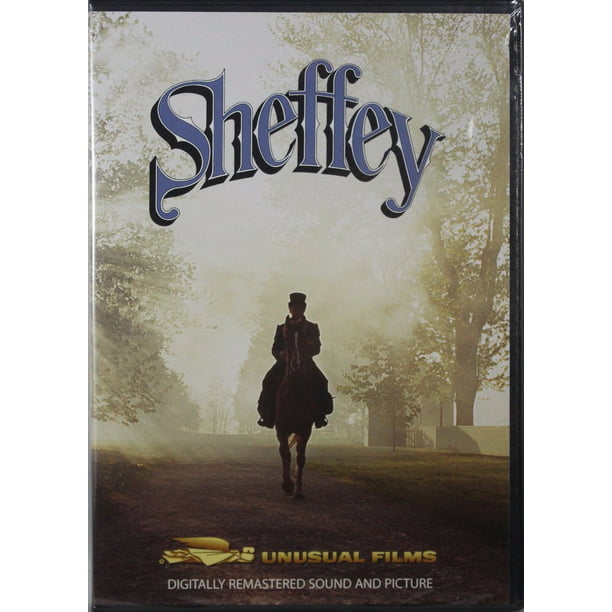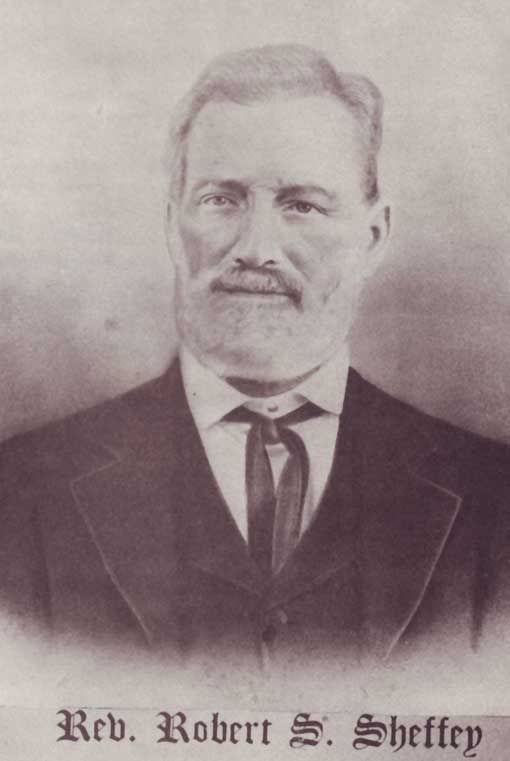Here is a story where it took a while for the petitioner to get through…And starting out Presbyterian ….
"Grandfather was kind to me and considerate of me, yet he was strict with me. I worked along with him in the field when the weather was agreeable and when it was inclement I helped him in his hatter's shop, for the Civil War was in progress and he had returned at odd times to hatmaking. It was my business in the shop to stretch foxskins and coonskins across a wood-horse and with a knife, made for that purpose, pluck the hair from the fur. I despise the odor of foxskins and coonskins to this good day. He had me to walk two miles every Sunday to Dandridge to Church service and Sunday-school, rain or shine, wet or dry, cold or hot; yet he had fat horses standing in his stable. But he was such a blue-stocking Presbyterian that he never allowed a bridle to go on a horse's head on Sunday. The beasts had to have a day of rest. Old Doctor Minnis was the pastor, and he was the dryest and most interminable preacher I ever heard in my life. He would stand motionless and read his sermons from manuscript for one hour and a half at a time and sometimes longer. Grandfather would sit and never take his eyes off of him, except to glance at me to keep me quiet. It was torture to me." - George Clark Rankin
George Clark Rankin and myself also moved to kind hearted kinsmen where the religion came into the heart, reporting to the mind what had taken place....
In the course of an hour I was at my uncle's. He was surprised to see me, but gave me a cordial welcome. The first thing he did was to disarm me, and that ended my pistol-toting. I have never had one about my person or home to this good day. And I never will understand just why I had that one. A good dinner refreshed me and I soon unfolded my plans and they were satisfactory to my kind-hearted kinsman. He was in the midst of cotton-picking and that afternoon I went to the field and, with a long sack about my waist, had my first experience in the cottonfield. We then would get ready for the revival occurring that night…
After the team had been fed and we had been to supper we put the mules to the wagon, filled it with chairs and we were off to the meeting. When we reached the locality it was about dark and the people were assembling. Their horses and wagons filled up the cleared spaces and the singing was already in progress. My uncle and his family went well up toward the front, but I dropped into a seat well to the rear. It was an old-fashioned Church, ancient in appearance, oblong in shape and unpretentious. It was situated in a grove about one hundred yards from the road. It was lighted with old tallow-dip candles furnished by the neighbors. It was not a prepossessing-looking place, but it was soon crowded and evidently there was a great deal of interest. A cadaverous-looking man stood up in front with a tuning fork and raised and led the songs. There were a few prayers and the minister came in with his saddlebags and entered the pulpit. He was the Rev. W. H. Heath, the circuit rider. His prayer impressed me with his earnestness and there were many amens to it in the audience. I do not remember his text, but it was a typical revival sermon, full of unction and power.
At its close he invited penitents to the altar and a great many young people flocked to it and bowed for prayer. Many of them became very much affected and they cried out distressingly for mercy. It had a strange effect on me. It made me nervous and I wanted to retire. Directly my uncle came back to me, put his arm around my shoulder and asked me if I did not want to be religious. I told him that I had always had that desire, that mother had brought me up that way, and really I did not know anything else. Then he wanted to know if I had ever professed religion. I hardly understood what he meant and did not answer him. He changed his question and asked me if I had ever been to the altar for prayer, and I answered him in the negative. Then he earnestly besought me to let him take me up to the altar and join the others in being prayed for. It really embarrassed me and I hardly knew what to say to him. He spoke to me of my mother and said that when she was a little girl she went to the altar and that Christ accepted her and she had been a good Christian all these years. That touched me in a tender spot, for mother always did do what was right; and then I was far away from her and wanted to see her. Oh, if she were there to tell me what to do!
By and by I yielded to his entreaty and he led forward to the altar. The minister took me by the hand and spoke tenderly to me as I knelt at the altar. I had gone more out of sympathy than conviction, and I did not know what to do after I bowed there. The others were praying aloud and now and then one would rise shoutingly happy and make the old building ring with his glad praise. It was a novel experience to me. I did not know what to pray for, neither did I know what to expect if I did pray. I spent the most of the hour wondering why I was there and what it all meant. No one explained anything to me. Once in awhile some good old brother or sister would pass my way, strike me on the back and tell me to look up and believe and the blessing would come. But that was not encouraging to me. In fact, it sounded like nonsense and the noise was distracting me. Even in my crude way of thinking I had an idea that religion was a sensible thing and that people ought to become religious intelligently and without all that hurrah. I presume that my ideas were the result of the Presbyterian training given to me by old grandfather. By and by my knees grew tired and the skin was nearly rubbed off my elbows. I thought the service never would close, and when it did conclude with the benediction I heaved a sigh of relief. That was my first experience at the mourner's bench.
As we drove home I did not have much to say, but I listened attentively to the conversation between my uncle and his wife. They were greatly impressed with the meeting, and they spoke first of this one and that one who had "come through" and what a change it would make in the community, as many of them were bad boys. As we were putting up the team my uncle spoke very encouragingly to me; he was delighted with the step I had taken and he pleaded with me not to turn back, but to press on until I found the pearl of great price. He knew my mother would be very happy over the start I had made. Before going to sleep I fell into a train of thought, though I was tired and exhausted. I wondered why I had gone to that altar and what I had gained by it. I felt no special conviction and had received no special impression, but then if my mother had started that way there must be something in it, for she always did what was right. I silently lifted my heart to God in prayer for conviction and guidance. I knew how to pray, for I had come up through prayer, but not the mourner's bench sort. So I determined to continue to attend the meeting and keep on going to the altar until I got religion.
Early the next morning I was up and in a serious frame of mind. I went with the other hands to the cottonfield and at noon I slipped off in the barn and prayed. But the more I thought of the way those young people were moved in the meeting and with what glad hearts they had shouted their praises to God the more it puzzled and confused me. I could not feel the conviction that they had and my heart did not feel melted and tender. I was callous and unmoved in feeling and my distress on account of sin was nothing like theirs. I did not understand my own state of mind and heart. It troubled me, for by this time I really wanted to have an experience like theirs.
When evening came I was ready for Church service and was glad to go. It required no urging. Another large crowd was present and the preacher was as earnest as ever. I did not give much heed to the sermon. In fact, I do not recall a word of it. I was anxious for him to conclude and give me a chance to go to the altar. I had gotten it into my head that there was some real virtue in the mourner's bench; and when the time came I was one of the first to prostrate myself before the altar in prayer. Many others did likewise. Two or three good people at intervals knelt by me and spoke encouragingly to me, but they did not help me. Their talks were mere exhortations to earnestness and faith, but there was no explanation of faith, neither was there any light thrown upon my mind and heart. I wrought myself up into tears and cries for help, but the whole situation was dark and I hardly knew why I cried, or what was the trouble with me. Now and then others would arise from the altar in an ecstasy of joy, but there was no joy for me. When the service closed I was discouraged and felt that maybe I was too hardhearted and the good Spirit could do nothing for me.



